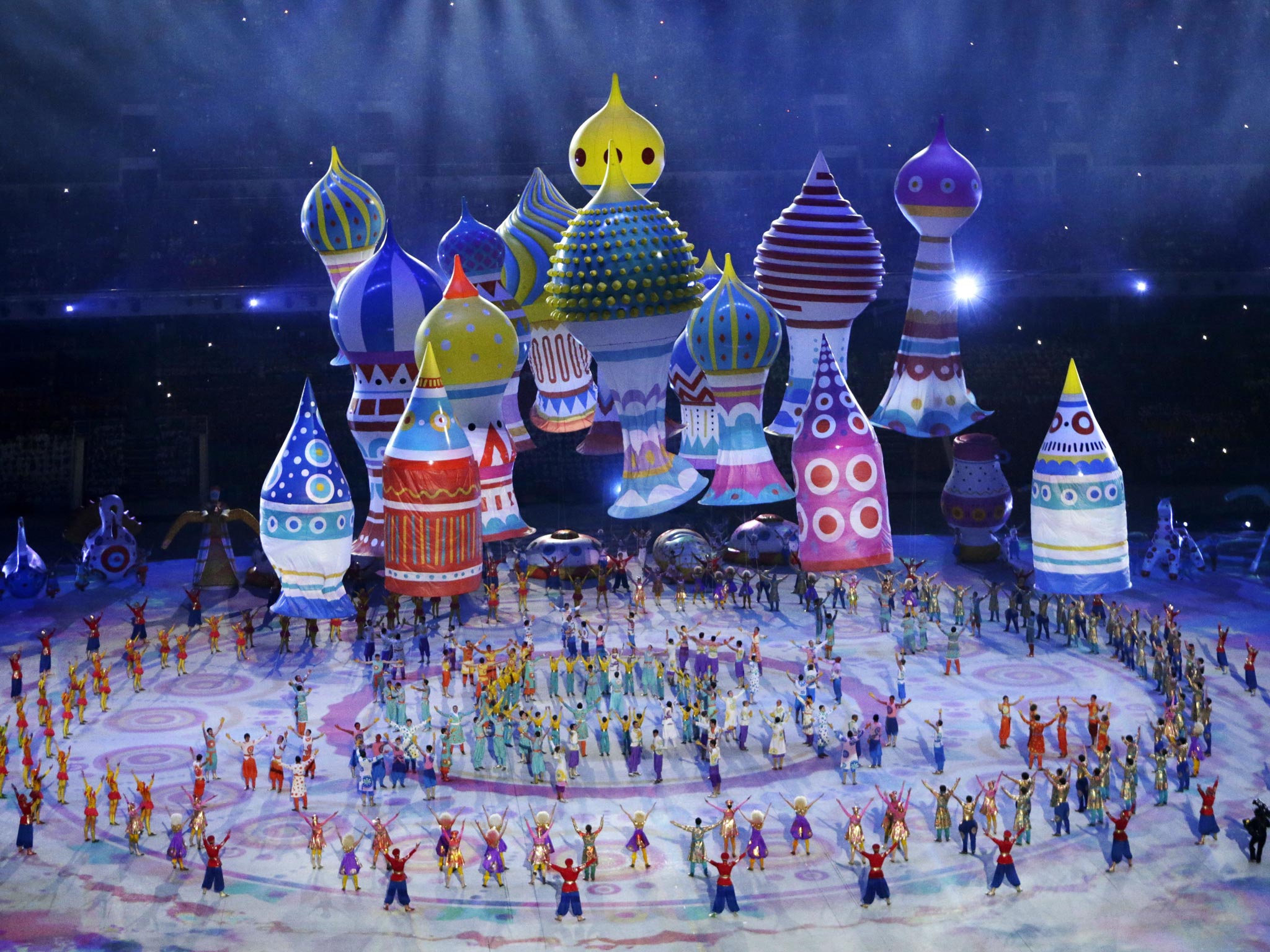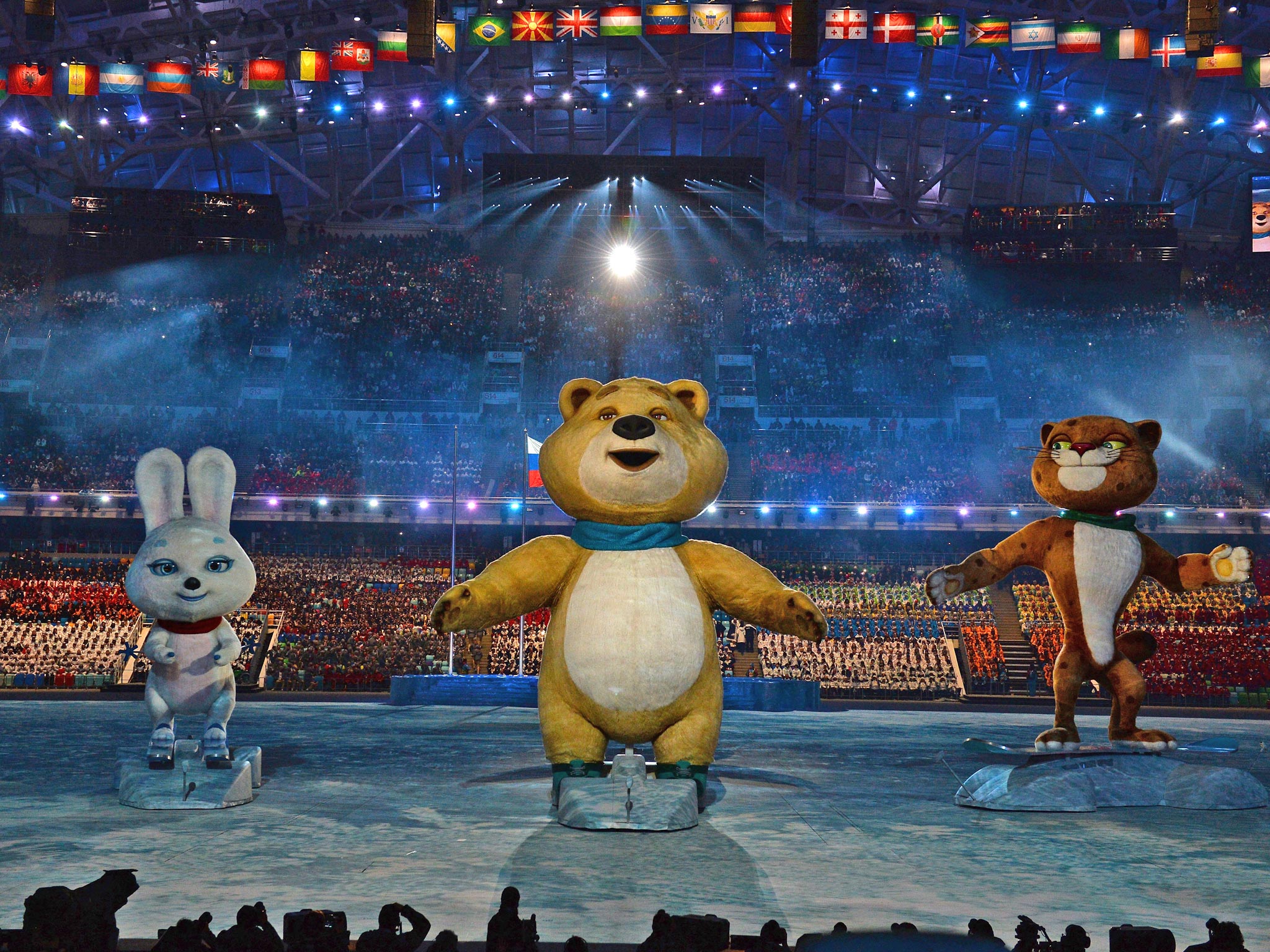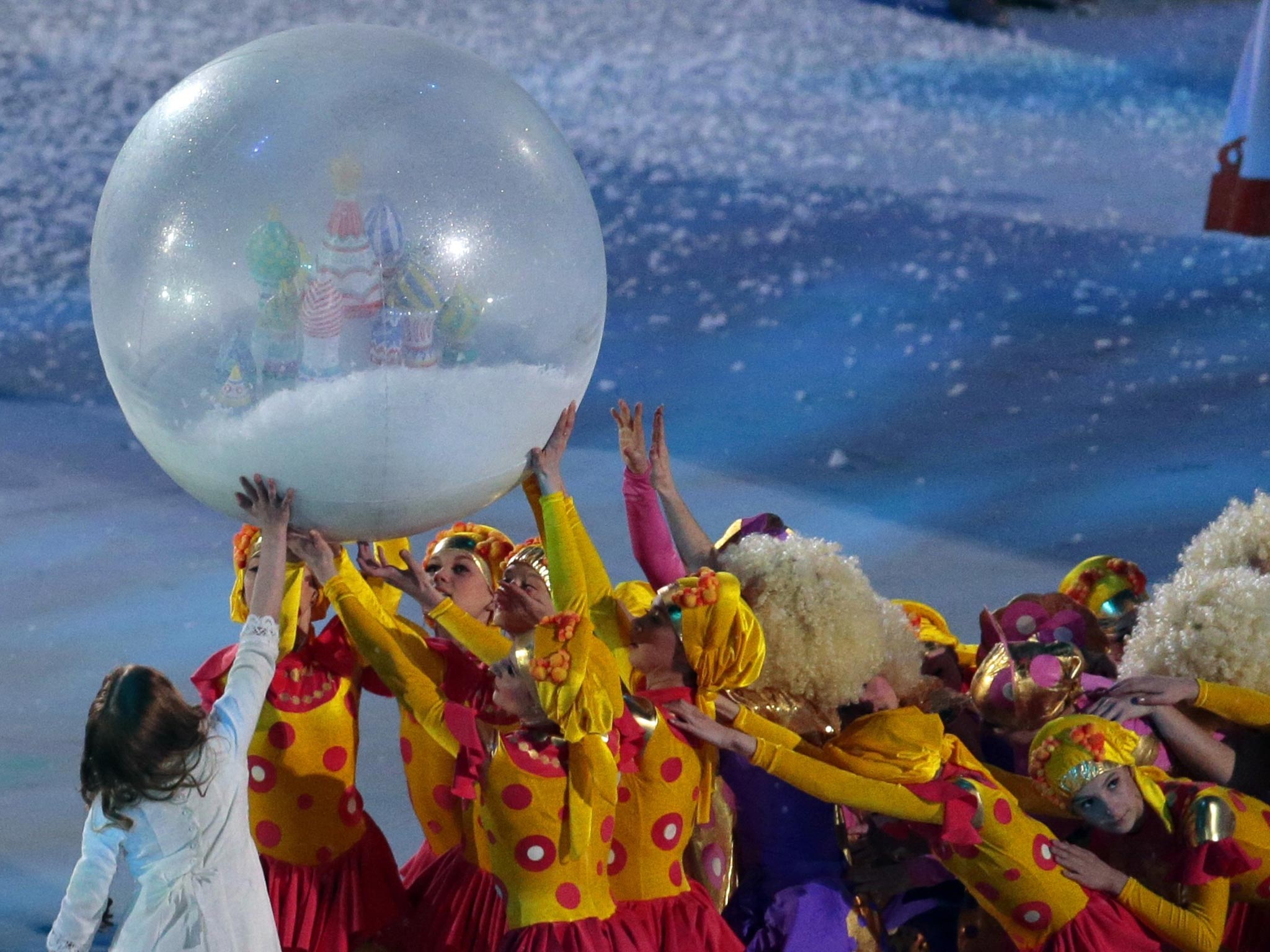Winter Olympics 2014: Bigger, brasher, brighter - Sochi releases spirit of Vladimir Putin’s Russia
After a pre-show of high camp moments, notably the Interior Ministry police choir singing Daft Punk’s Get Lucky, the ceremony overcame a rocky start

Kitsch, camp and with a dash of the Kremlin. The Winter Olympic Games opened in Sochi on Friday with a loud, proudly Russian and – despite the odd glitch – ultimately impressive ceremony in the Fisht Stadium, here on the shores of the Black Sea.
The brash three-hour show, cheerily influenced by Danny Boyle’s ceremony for the London 2012 Summer Games, featured an extraordinarily breezy “avant garde” dance interpretation of the Revolution, Maria Sharapova, a blonde-haired girl named Lubov – Russian for love, the theme of the night – and the former gymnast Alina Kabaeva, who played a role in lighting the torch. Kabaeva is reported to be Vladimir Putin’s current love interest, a possibly deferential addition to the ceremony’s theme.
After a pre-show that featured moments of high camp – most notably the uniformed Interior Ministry police choir singing Daft Punk’s “Get Lucky” – the ceremony itself overcame a sticky start when one of the Olympic rings lowered into the stadium failed to open. As the other three transformed from giant snowflakes, the final one remained closed. It marred a stunning opening few minutes in which dioramas of the Russian countryside were lowered from high in the wings to fill the arena.
Having overseen the spending of $51bn to bring the Games, the most expensive Olympics ever, to his favourite holiday spot, Putin will not have been amused.
The rest of the ceremony should have restored his mood, even if the decision to promote the athletes’ march – the “boring bit” according to Konstantin Ernst, the creative director – to early in proceedings rather than the pre-torch finale gave the President plenty of time to stew.
It culminated with the lighting of the cauldron by former Olympic medallists Irina Rodnina and Vladislav Tretiak, a former gymnast and ice-hockey goal-tender. That after a helping hand from Sharapova, the athlete Elena Isinbaeva, the wrestler Alexandr Karelin and Kabaeva. The sporting name-check rounded off an extensive run through Russia’s rich history of art and literature. Yesterday morning, Ernst, who oversaw the Eurovision Song Contest in Moscow in 2009, claimed to have “felt painfully the burden of this responsibility”.

He described his intention as a simple ceremony and presented the 40,000-capacity audience with a show designed for television rather than for those in the stadium. Nevertheless at close quarters it still shone. Following the athletes’ arrival – Jamaica’s bobsleighers receiving the second-loudest cheer after the host nation – the show resumed with giant figures of the Games’ three mascots, a bear, a snow leopard and a rabbit, cavorting around the arena in a nod to the 1980 Summer Games ceremony.
It was colourful and at times bewildering, but no more so than Boyle’s memorable tribute to the NHS was to most of the world two years ago. After a scene to represent Russia’s nature and the country’s Pancake Week, the history lesson began. Peter the Great built St Petersburg, pillars appeared from the ground – thank you, London – and hundreds of dancers replayed the grand ball scene from War And Peace.

The Revolution was heralded by a brutally sculpted train and a horde of dancers dressed in red who were replaced with workers constructing the Soviet Union beneath a giant hammer and sickle. It was a brisk glossing over of history.
“It carries the name of this country to the world,” said Ernst. The world probably enjoyed much of it. What it makes of the wider issues that surround these Olympics remains to be seen.
“When we set out on this journey we tried to break down stereotypes to reveal a new Russia to the world,” said Dmitry Chernyshenko, the president of Sochi 2014.
The response from Thomas Bach, president of the International Olympic Committee, was pointed. He said: “It is possible, even as competitors, to live together under one roof in harmony, with tolerance, without any form of discrimination for whatever reason.”
Join our commenting forum
Join thought-provoking conversations, follow other Independent readers and see their replies
Comments